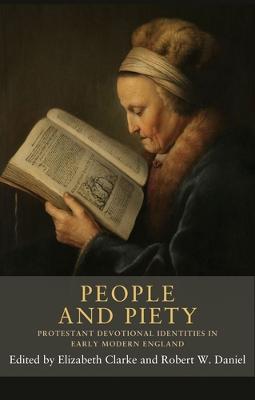Seventeenth- and Eighteenth-Century Studies
1 total work
People and Piety
Published 18 September 2020
This international and interdisciplinary volume investigates Protestant devotional identities in sixteenth- and seventeenth-century England. Divided into two sections, the book examines the 'sites' where these identities were forged - the academy, printing house, household, theatre and prison - and the 'types' of texts that expressed them - spiritual autobiographies, religious poetry and writings tied to the ars moriendi - providing a broad analysis of social, material and literary forms of devotion during England's Long Reformation. Through archival and cutting-edge research, a detailed picture of 'lived religion' emerges, which re-evaluates the pietistic acts and attitudes of well-known and recently discovered figures. To those studying and teaching religion and identity in early modern England, and anyone interested in the history of religious self-expression, these chapters offer a rich and rewarding read.
